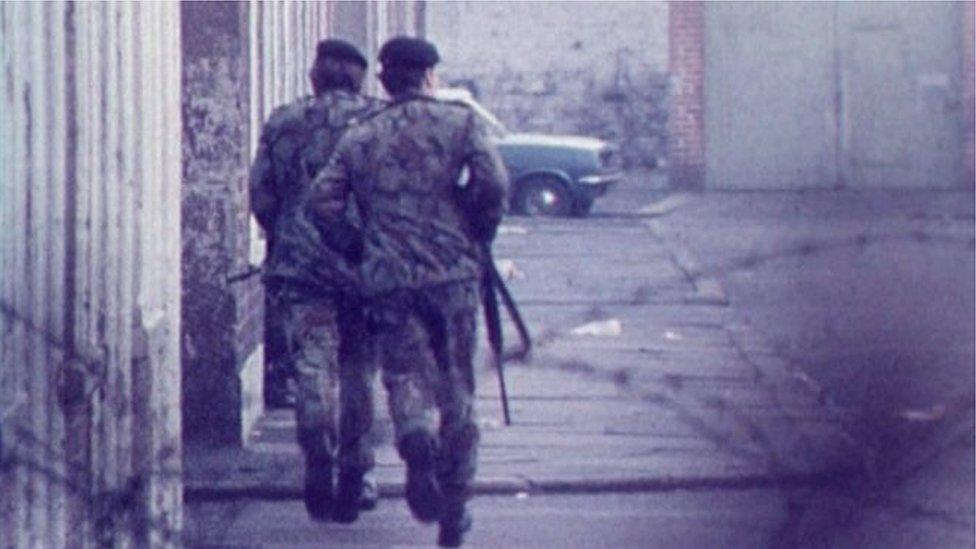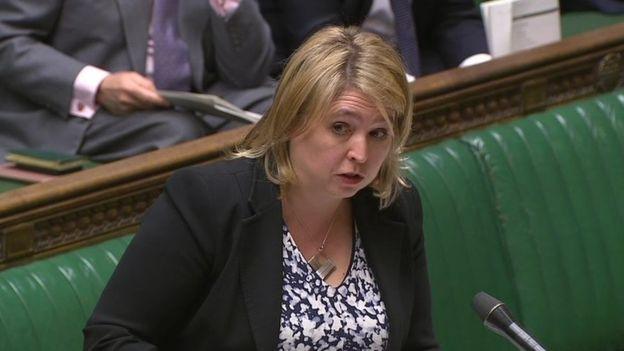Legacy consultation: Majority oppose amnesty for Troubles-related matters
- Published

The legacy document outlines plans for dealing with Troubles-related deaths
A "clear majority" of those who responded to a consultation on the legacy of the Troubles felt a statute of limitations or amnesty for Troubles-related matters would be inappropriate.
About 17,000 public responses to the consultation were received between May and October last year.
No specific question was asked on the proposal for a "statute of limitations" for military veterans.
The idea had widespread support among Conservative MPs.
A so-called statute of limitations would prevent military veterans from being prosecuted.
However, a summary of the responses, published at midday on Friday, stated that "many were clear that victims, survivors and families are entitled to pursue criminal justice outcomes and such a move could risk progress towards reconciliation".
The Northern Ireland Office document recorded a strong view that any new mechanisms to deal with the legacy of the Troubles "must be fair and not favour any particular group".

The proposals have already been criticised by groups representing police and soldiers who served during the Troubles
The summary also said that some argued that any criminal cases brought against former soldiers should be halted.
The respondents pointed to the discrepancy between the treatment of military veterans and paramilitaries who benefited from the Good Friday Agreement early prison release scheme, external and the provision of "on-the-run" letters assuring fugitives they would not face prosecution.
'One-sided investigations'
A number of respondents held the view that the proposals contained in the 2014 Stormont House Agreement for new legacy institutions, including an Historical Investigations Unit and an Independent Commission on Information Retrieval, are weighted against former members of the security forces.
Concerns were expressed that any legacy investigations would be "one-sided in favour of terrorist groups" and that more should be done to protect former members of the security forces.

Some organisations representing ex-soldiers argued against any type of statute of limitation or amnesty
Others argued that an amnesty should be implemented, suggesting this would support broader reconciliation and help Northern Ireland to move forward by avoiding the divisions which, they feared, could be stirred during and after any legacy prosecutions.
'Moral equivalence'
However, the summary of responses also points out that some organisations representing security force personnel argued against any type of statute of limitation or amnesty as they believe those they represent would have no difficulty answering for their actions during the Troubles.
Others felt that granting blanket immunity from prosecution could create a misleading impression of moral equivalence between security forces and terrorists.
Those responding to the consultation were divided on a change to the definition of a victim, which currently can include perpetrators of violent acts as well as those who have never been involved in violence.
Many were in favour of better financial support for Troubles victims, including a pension for those seriously injured physically or psychologically.
Those responding to the consultation included political parties, victims groups and organisations representing military veterans.
Allow X content?
This article contains content provided by X. We ask for your permission before anything is loaded, as they may be using cookies and other technologies. You may want to read X’s cookie policy, external and privacy policy, external before accepting. To view this content choose ‘accept and continue’.
Some groups co-ordinated the submission of large numbers of responses. The Northern Ireland Office summary document does not give a precise breakdown of the figures.
- Published30 April 2019

- Published4 July 2019

- Published11 May 2018
